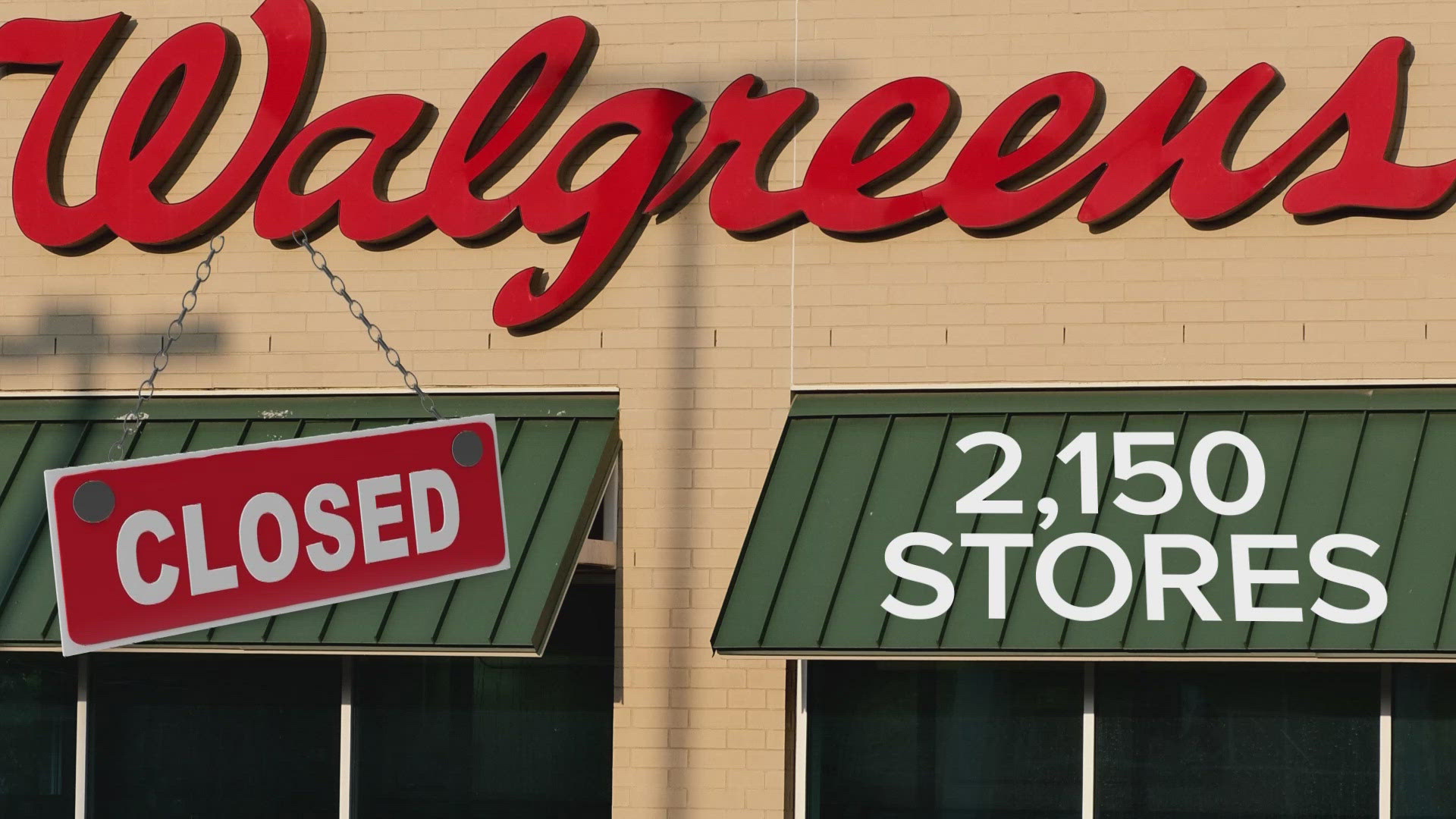HOUSTON — Pharmacy chains are closing in record numbers across the country, making prescriptions harder to access for some of the most vulnerable. The impact is being felt in Greater Houston where more than five dozen neighborhoods do not have a single pharmacy.
We followed Dorothy Murphy, 87, one day as she made a routine run to her neighborhood pharmacy in southeast Houston.
“We’re going to CVS to pick up prescriptions,” Murphy said.
Getting there can be a challenge because Murphy does not drive anymore.
“That’s totally out of the question,” Murphy said.
She had to call on a few friends.
“When I need a ride there, I pick up my phone and I start dialing. The first person who answers, that’s the person who carries me,” Murphy said.
On this day, her pastor is making the three-mile trip through the 77021 ZIP code.
“When I read about Walgreens closing so many stores, they said they were closing them because some of them were not profitable,” pastor Linda Davis said.
CVS has closed around 600 stores across the United States since 2022 and expects to close 300 this year. In June, Walgreens announced plans to close 25% (2,150) of its roughly 8,600 stores. Both pharmacy chains cited changes in population and consumer buying patterns.
Dr. Omolola Adepoju, a clinical associate professor at the University of Houston College of Medicine, studies trends in healthcare access.
“It made me a little angry about the impact that would have on a lot of underserved populations who already reside in pharmacy deserts,” Adepoju said.
Last year, she and a team of graduate students began researching pharmacy access in Greater Houston neighborhoods.
They found Sugar Land (77478) had the most with 37 pharmacies followed by Katy (77494) with 28 and Sienna (77459) with 27. They also found at least 65 ZIP codes in Greater Houston with no pharmacies, meaning those folks likely have to travel farther to get to one.
“The No. 1 challenge is the additional travel so it doubles our travel time. For example, if you have to pick up medications for, say, your kid or if you’re older and you have to pick up multiple medications, you have to go to the pharmacy multiple times,” Adepoju said.
Another problem they found is difficulty in making alternate arrangements to get prescriptions, time being a major issue. In Texas, pharmacies are only required to give two weeks’ notice before closing.
“If you pick up your medication monthly, and you show up after that, 14 days, and it’s closed, and then you think of where am I going? Where am I picking up this medication,” Adepoju said.
Adepoju has also researched possible solutions to help make the adjustment smoother.
“There needs to be more notice, maybe a six-month notice. They (pharmacies) also need to engage with community residents and tell them what their options are,” Adepoju said.
One alternative is to have prescriptions sent by mail. But for Ms. Dorothy, who says she’s already had her credit card compromised, and the fear of thieves taking packages from her door, she’d rather rely on her friends and a team of pharmacists who know her by name.
“I love them, and they love me. I’ve built a relationship that is beautiful,” Murphy said.
Another solution Adepoju suggests is to improve partnerships between healthcare and prescription providers to help identify patients with limited access.
Adepoju is planning to take her research to lawmakers and lobby leaders to apply for government funding to establish pharmacies in places like churches and community centers.
Last year, a total of 43 pharmacies closed in Greater Houston.
Click here to see how many pharmacies have closed in your neighborhood or take a look at the interactive map below.

